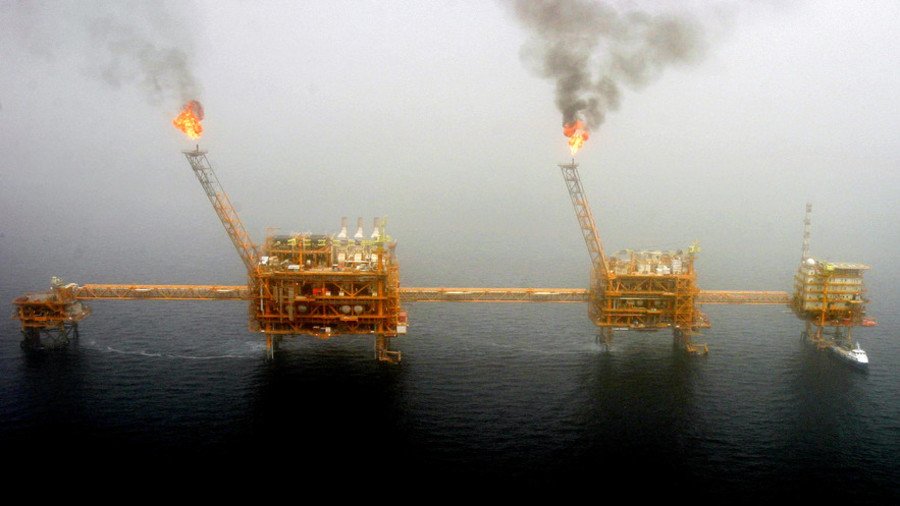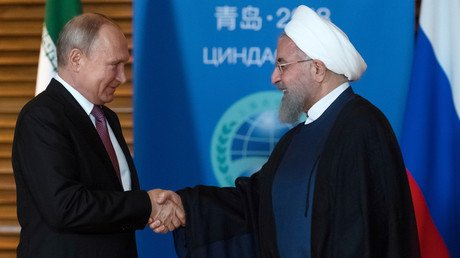Washington may slap sanctions on governments that fail to reduce Iranian oil imports to "zero" by early November, a senior State Department official has warned. But some partners seem reluctant to follow the demand.
The US administration has been pushing its allies to follow US President Donald Trump's lead after he decided to pull out of the landmark nuclear agreement between Iran and six world powers. A senior State Department official told reporters on Tuesday he had been traveling to Europe and Asia to convince allies to isolate the "stream of Iranian funding."
Washington's allies, including those dependent on Iran’s oil, should ultimately refuse the imports by November 4 or else face secondary US sanctions. It was stressed that there are no waivers planned.
This mean that the Trump administration will not allow countries to gradually phase out Iran’s oil exports over the duration of many months like the Obama White House did.
"We have a lot of diplomatic muscle memory for urging, cajoling, negotiating with our partners to reduce their investments to zero," the unnamed State Department official said.
Their trip did not include Turkey, and the largest importers of Iran's oil - India and China - so far, but the countries are also to be urged to stop purchases by early November.
India and China traditionally used to get a waiver from sanctions and kept trading with Iran even before the 2015 agreement, so speculation is rife as to whether they will manage to find workarounds this time.
The State Department acknowledges that cutting off Iranian oil imports completely is a “challenge” that no country “wants to do voluntarily”.
Among Iran’s most significant customers are China, South Korea, India and Japan. The State Department said that, even if reluctantly, Tokyo understands "that the Secretary and the White House aren't kidding" about sanctions, the official said.
In Europe, where the biggest customers are France and Italy, the US is meeting resistance - especially among those countries that helped negotiate the Iran deal. The UK, France and Germany voiced opposition to Trump's withdrawal from the Joint Comprehensive Plan of Action (JCPOA) and the EU put measures in place aimed at protecting companies from secondary sanctions.
READ MORE: Oil jumps as Trump asks allies to cut off Iranian oil
Oil prices spiked on the announcement, which already comes during concerns about shortages and crude prices hitting a three-and-a-half-year high.
The withdrawal from the nuclear deal left the US isolated, as its close allies, including France, UK, and Germany, have been working to prevent the agreement from crumbling. Meanwhile Iran vowed to reopen its second uranium enrichment facility if the nuclear deal collapses.
Think your friends would be interested? Share this story!


